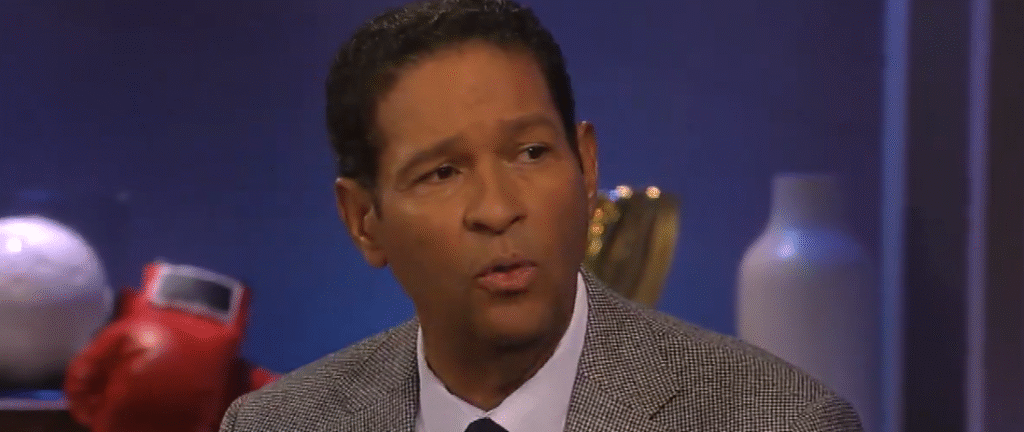The foundation of Bryant Gumbel’s reputation was his formidable consistency rather than his flash. He remained unflappable over decades of live television, a quality that subtly translated into something far more material: wealth. Gumbel’s estimated net worth today is $25 million, which includes his earnings as well as his earned respect, wise decisions, and a reputation for substance rather than show. Gumbel’s rise has been very different from that of many media figures who ride waves of viral fame; it has been steady, purposeful, and incredibly successful.
He reportedly earned $6 million a year by the end of his 29-year tenure on HBO’s Real Sports with Bryant Gumbel, making him one of the highest paid journalists in the nation. But making headlines was never his goal on the way to earning that much money. It was about being visible, being a credible leader, and staying relevant in a media landscape that was changing quickly. In terms of both brand value and financial gain, that strategy has shown itself to be not only sustainable but remarkably resilient over time.
Bryant Gumbel: Bio and Career Summary
| Category | Details |
|---|---|
| Full Name | Bryant Charles Gumbel |
| Date of Birth | September 29, 1948 |
| Age | 76 |
| Profession | Television journalist, sportscaster |
| Net Worth | $25 million |
| Salary at HBO | $6 million per year (1995–2023) |
| Major Shows | The Today Show, The Early Show, Real Sports with Bryant Gumbel |
| Spouses | June Baranco (1973–2001), Hilary Quinlan (2002–present) |
| Children | Bradley and Jillian Gumbel |
| Reference | Celebrity Net Worth |
To improve their financial profiles, many broadcast veterans have turned to branding and endorsements in recent decades. To Gumbel, the opposite was true. He avoided commercial distractions in favor of creating content with high integrity. Gumbel established a career that continuously produced results—not with flash, but with focus—from hosting NBC’s Today Show to anchoring prime-time Olympic coverage and later becoming an advocate for investigative reporting at HBO. This dedication was especially helpful in safeguarding his long-term earning potential and brand equity.

Compared to more flamboyant figures like Katie Couric or Matt Lauer, Gumbel’s net worth may appear modest, but it is based on value rather than virality. His empire was not founded on charisma or controversy. By communicating in a very clear manner and building trust with his audience, he was able to build one. Few people can match that degree of public loyalty.
Gumbel remained steadfast over the last ten years as digital media platforms grew and television journalism battled for attention. He remained dedicated to longform journalism while others switched to podcasting or started lifestyle brands. He exposed injustice, looked into corruption, and told powerful stories through Real Sports. His approach was significantly enhanced by taking time, allowing stories to breathe and develop precisely in a culture that is becoming more and more focused on immediacy.
Gumbel’s career in finance demonstrates a hybrid approach: aggressive with quality and cautious with visibility. He stayed away from distractions that lessened his impact and put his energy where it was most needed. That strategy has been very effective in terms of revenue and influence. He placed a wager on long-term credibility rather than ephemeral relevance, and it paid off.
Additionally, he was able to carefully traverse the frequently perilous realm of personal finance. Even though his 2001 divorce from June Baranco was said to have been costly, it didn’t stop him from succeeding financially. He might have strengthened his strategic perspective even more by marrying Hilary Quinlan, a former analyst at Goldman Sachs. Their household probably functions with a level of financial literacy that is notably uncommon among celebrity couples.
The way Gumbel has matched his career with social impact has a lasting strength. Through highly visible performances rather than forceful declarations, he has subtly cleared the path for Black journalists to advance in mainstream media. His appearance on Today in the 1980s was especially groundbreaking for its time, and his subsequent financial success has demonstrated how excellence can become its own brand when it is safeguarded and projected over time.
It is evident that Bryant’s shift to news and documentaries provided him with a wider platform and more varied earning potential when contrasting his career path with that of his older brother, Greg Gumbel, whose net worth is reportedly around $16 million. Breaking hard news, moderating panel discussions, and anchoring national events all contributed to the financial base that underpinned his eventual ascent to a $25 million valuation.
The lesson is especially obvious for younger journalists observing his trajectory: consistency adds up. It gradually increases financial resilience rather than producing sudden, explosive wealth. By avoiding brand dilution and preserving credibility across platforms, Gumbel built a lucrative career that lasted well into his seventies.
